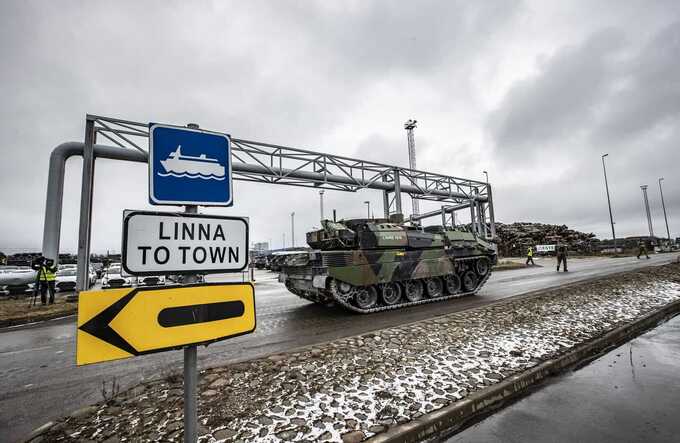A French general wants to slash red tape to move troops faster across Europe

A French general criticized the bureaucratic red tape involved in moving equipment and weapons to allied troops in Europe.
He wants to slash red tape to better prepare for the rapid movement and deployment of allied forces in the event of Russian aggression.
General Bertrand Toujouse said this in an interview with Politico.
In his opinion, European countries need to change their approaches to military logistics, which is not an easy task.
“If Europe wants to deter possible Russian aggression, it has to do a much better job of moving tanks, troops and ammunition across the continent,” said General Bertrand Toujouse, in charge of the French army’s newly created land command for Europe.

He noted that if Russia attacked a NATO country, European and American soldiers needed to reach the alliance’s eastern flank as fast as possible. But current obstacles to swift movement include lengthy and fragmented administrative processes to carry war materiel across borders; inadequate infrastructure — including bridges and tunnels — to move armored vehicles; and a lack of transport capacity such as rail cars.
“We discovered the extent of the administrative red tape. There’s a war in Ukraine, but customs officials explain that you don’t have the right tonnage per axle and that your tanks aren’t allowed to cross Germany. It’s just unbelievable,” a top French general said.
Bertrand Toujouse acknowledged that improving military mobility won’t be easy because transport and customs rules are largely a national prerogative.
He suggests starting with the railroad infrastructure. In his opinion, “railroads are still by far the most practical” way to move tanks around.
The French army general noted that the problems were not only in the bureaucracy, but also in the ability of the military and railroad to organize large-scale transportation of equipment.

In June, it became known that NATO was developing numerous corridors to move troops and weapons to the eastern flank of the Alliance in the event of war with Russia.

Norway, Finland, and Sweden agreed to create a cross-border military transport corridor to facilitate the transfer of military equipment and personnel between the countries.
Read more similar news:
Comments:
comments powered by Disqus

































